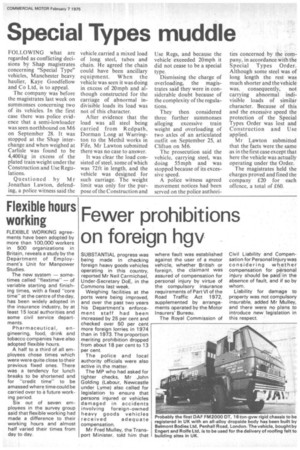Flexible hours working
Page 25

If you've noticed an error in this article please click here to report it so we can fix it.
FLEXIBLE WORKING agreements have been adopted by more than 100,000 workers in 500 organizations in Britain, reveals a study by the Department of Employment's Unit for Manpower Studies.
The new system — sometimes called "flextime" — of variable starting and finishing times, with a fixed "core time" at the centre of the day, has been widely adopted in the insurance industry, by at least 15 local authorities and some civil service departments.
Pharmaceutical, engineering, food, drink and tobacco companies have also adopted flexible hours.
A half to a third of all employees chose times which were were quite close to their previous fixed ones. There was a tendency for lunch breaks to be shortened and for "credit time" to be amassed where time could be carried over to a future working period.
Six out of seven employees in the survey group said that flexible working had made a difference to their working hours and almost half varied their times from day to day.












































































































































